Narrative Writing Teaching Resources
Teach narrative writing this school year with writing prompts, printable worksheets, storyboards and story maps and more teaching resources created by teachers for elementary teachers like you.
This collection of TEKS and Common Core curriculum-aligned teaching resources has been carefully curated by our expert teacher team. That means not only is every resource teacher-created, but each one has undergone our review process to ensure it's ready for your lesson plan and your students!
Is this your first year teaching students about writing narratives? Or maybe you're just looking for some fresh ideas to tackle the topic? Read on for a primer from our teacher team!
What Is Narrative Writing?
Narrative writing is the act of writing a story, and those stories can be fictional or non-fiction accounts of something the student has experienced or learned about.
This type of writing is often popular with students as it allows them to use their imagination and creativity.
Which Elements Does Strong Narrative Writing Always Contain?
To make their narrative writing engaging and strong, there are certain key elements students need to understand and include, so we've compiled this quick refresher for you.
Plot
The plot of strong narrative writing is crucial — without it, there's no narrative! Keeping the reader interested from the start of a story involves developing the characters well and including conflict.
Structure
Structure of the text is just as important as the plot when writing a strong narrative. Students should be writing texts that include a beginning, middle and end. This can include a clear introduction that sets up the main conflict, a rising action that builds tension and excitement and a resolution that provides closure and ties up loose ends.
Descriptive Language
Teaching students to go beyond overused words like "said" or "nice" and using more descriptive language can help them make their narrative writing stronger. This graphic element of writing works with imagery and figurative language to help readers visualize the story.
Descriptive language helps the reader to visualize the setting and the characters. Sensory details can help kids set the scene in their essay or story.
Point of View
Whether it is written in the first-person, the third-person or flips back and forth, a piece of strong narrative writing has a clear point of view. This helps the reader better understand the narrator or protagonist.
What Is a Hook in Narrative Writing?
One feature of narrative writing you may want to focus on with your students this school year is the art of writing a "hook" to capture the reader's attention and draw them into the story. This is a compelling introduction that will engage the reader and make them want to keep reading!
There is no one kind of hook! It can be anything from an interesting fact or question to a dramatic opening scene or dialogue.
8 Narrative Writing Examples and Assignments to Get Students Writing
Are you looking for some different examples of narrative writing assignments that will engage your students and inspire them to write? Try these ideas from our teacher team!
- A personal narrative about a special day the student will never forget
- A fictional narrative about a group of friends going on an adventure
- A descriptive narrative that uses sensory details and describing words to create a vivid image of riding a rollercoaster
- A historical narrative that tells the story of their favorite president
- A reflective narrative that explores the writer's thoughts and feelings about going to high school one day
- A fantastical narrative that includes magical or imaginary elements, like the arrival of a magic hat in the classroom
- A humorous narrative that uses comedic elements to entertain the reader about a time their gym teacher was replaced by an alien
- A collaborative narrative that involves students writing a chapter book in small groups
- Plus Plan
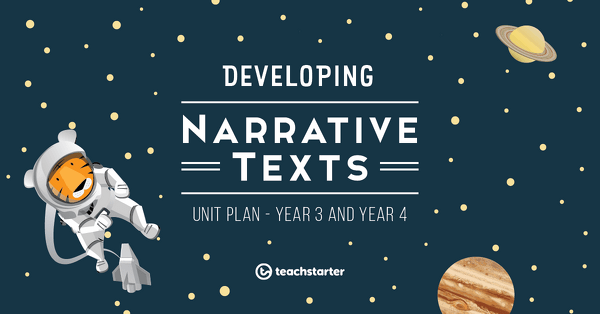
Creating a Narrative Writing Station
A 60 minute lesson in which students will discuss writing goals and explore a classroom writing station.
- Plus Plan
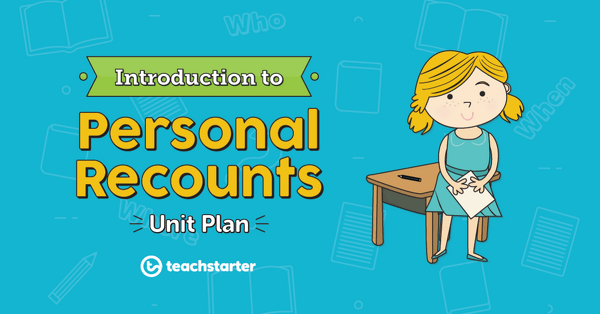
Adding Detail Using Describing Words
A 60 minute lesson in which students will investigate how descriptive words, such as adjectives, can add detail to a personal recount.
- Plus Plan
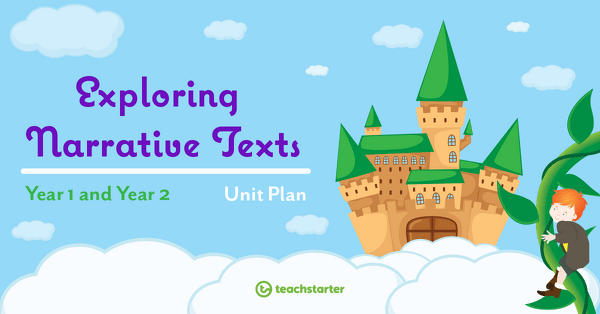
Writing a Fairy Tale
A 60 minute lesson in which students will independently write a fairy tale, using appropriate text structure, language and features.
- Plus Plan
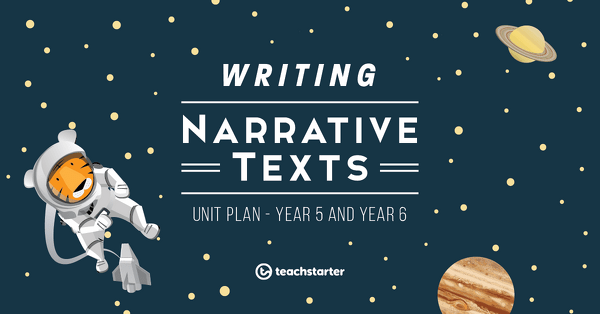
Applying Proofreading and Editing Skills
A 60 minute lesson in which students will learn and apply proofreading and editing skills.
- Plus Plan
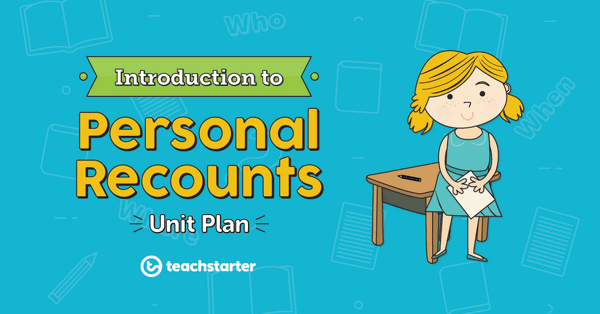
Action Verbs in Simple Past Tense
A 60 minute lesson in which students will investigate how action verbs can be expressed in simple past tense.
- Plus Plan
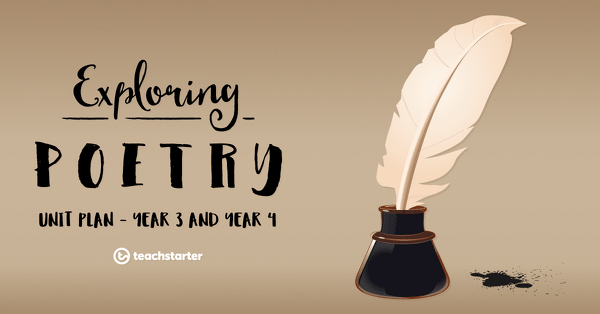
What is Poetry?
A 60 minute lesson in which students will develop a definition of poetry.
- Plus Plan
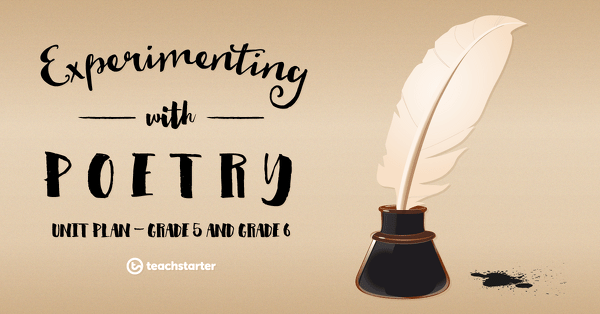
Experimenting with Poetry Unit Plan - Grade 5 and Grade 6
This English unit addresses the common elements of poetry and explores how these may be applied to shape poems, limericks, odes and simple ballads.
- Plus Plan
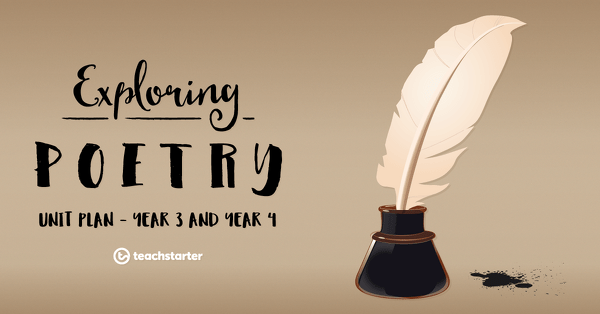
Exploring Poetry - Year 3 and Year 4 Unit Plan
This English unit addresses common poetic devices such as sound play, word play and imagery and explores how these may be applied to narrative poetry.
- Plus Plan
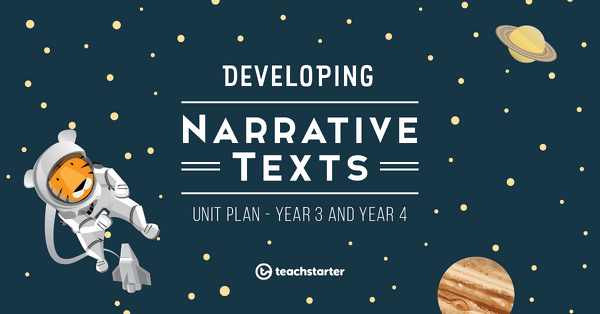
Narrative Skills - Independent Writing
A 60 minute lesson in which students will independently write a narrative, using appropriate text structure, language and features.
- Plus Plan
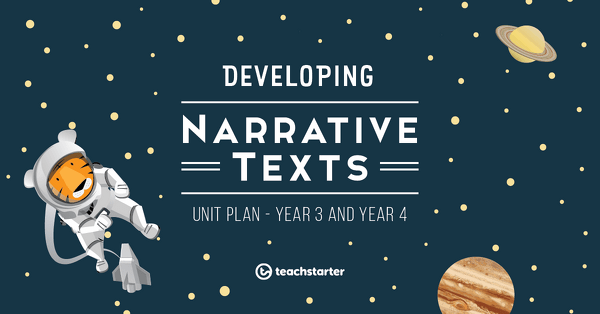
Narrative Skills - Planning a Story
A 60 minute lesson in which students will independently plan a setting, characters and plot for a narrative text.
- Plus Plan
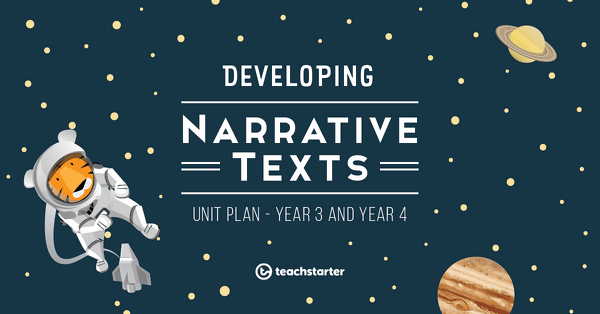
Narrative Skills - Shared Writing
A 60 minute lesson in which students will write a narrative, in pairs, using appropriate text structure, language and features.
- Plus Plan
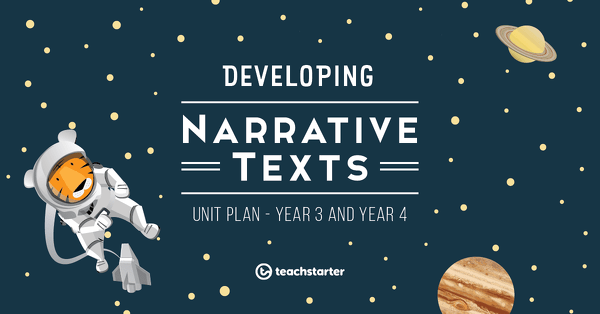
Narrative Skills - Sensational Story Starters
A 60 minute lesson in which students will investigate exciting, attention-grabbing methods of starting a story.
- Plus Plan
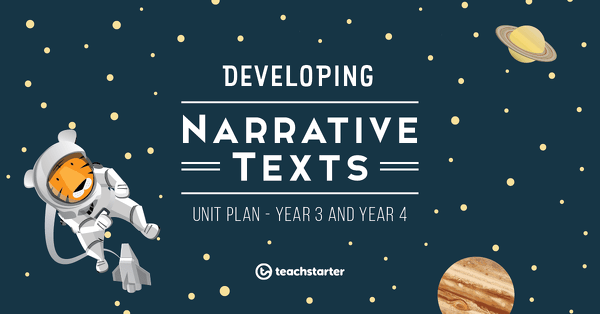
Quotation Marks in Narrative Writing
A 60 minute lesson in which students will explore the correct use of quotation marks in narrative writing.
- Plus Plan
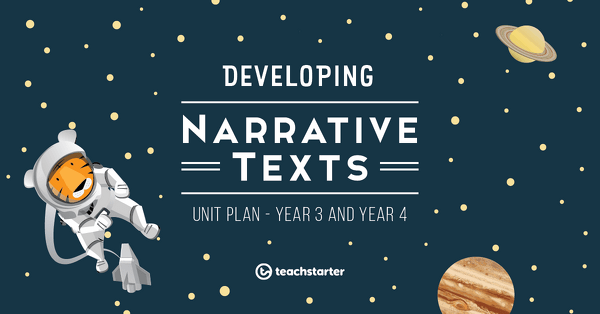
Narrative Features - Creating a Setting
A 60 minute lesson in which students will use descriptive language effectively to create a narrative setting.
- Plus Plan
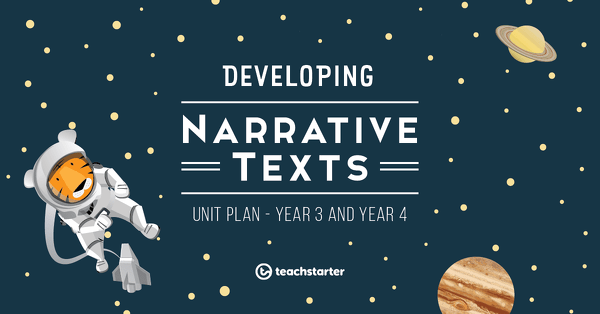
Constructing a Narrative Paragraph
A 60 minute lesson in which students will identify and use the correct paragraph structure for narrative writing.
- Plus Plan
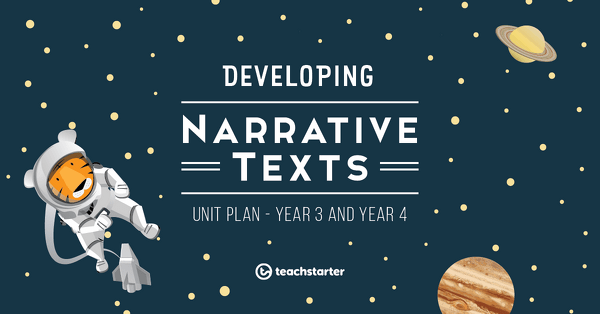
Parts of a Narrative Story
A 60 minute lesson in which students will identify and explore the parts of a narrative text.
- Plus Plan
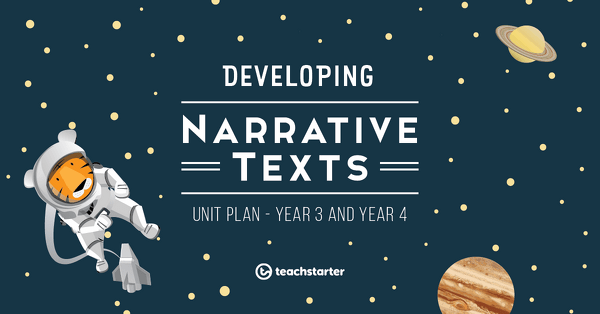
Narrative Texts - Language Features
A 60 minute lesson in which students will identify and explore the language features of narrative texts.
- Plus Plan
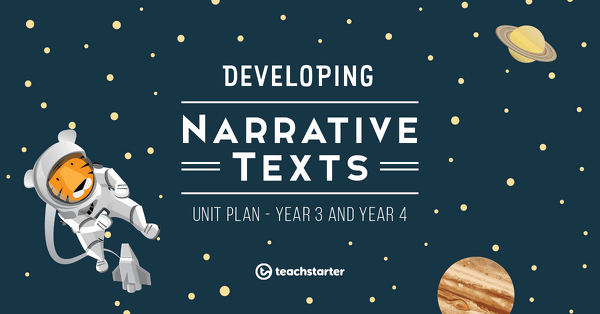
Narrative Texts - Text Structure
A 60 minute lesson in which students will identify and explore the structure of narrative texts.
- Plus Plan
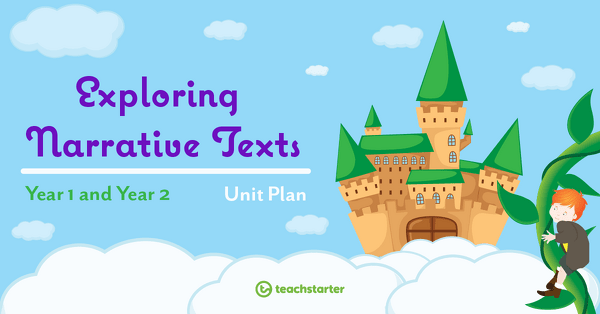
What's the Problem?
A 60 minute lesson in which students will develop a complication and resolution for a fairy tale.
- Plus Plan
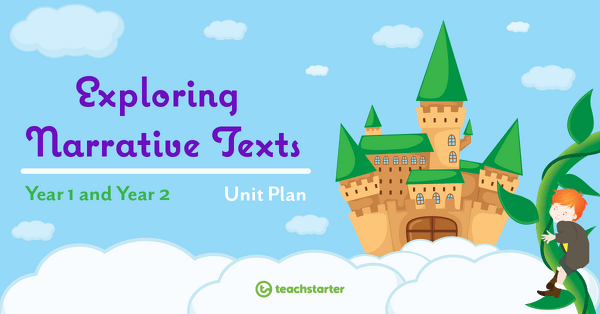
Creating a Fairy Tale Character
A 60 minute lesson in which students will develop a character for a fairy tale.
- Plus Plan
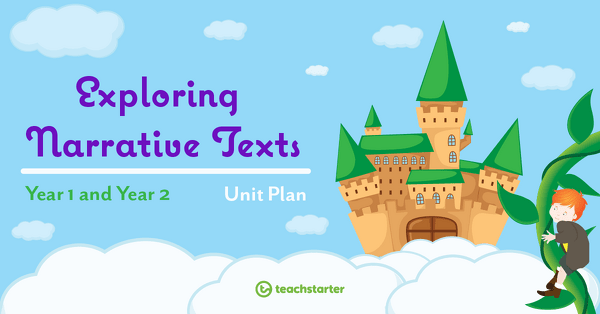
Exploring Simple Narrative Structure
A 60 minute lesson in which students will explore the structure of a narrative text.
- Plus Plan
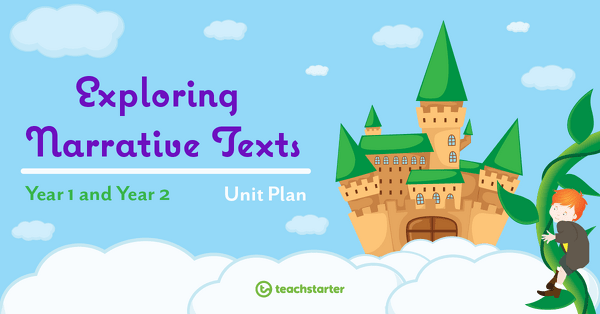
Introducing Simple Narrative Structure
A 60 minute lesson in which students will identify the structure of a narrative text using fairy tales.
- Plus Plan
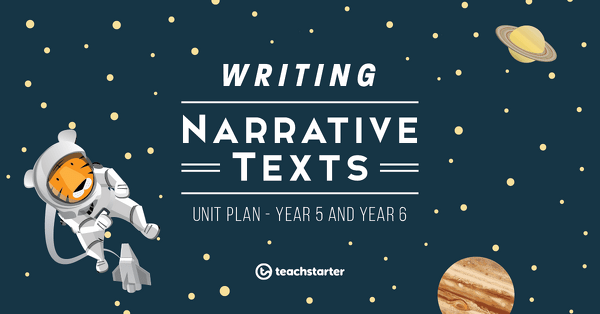
Writing a Narrative - Independent Writing
A 60 minute lesson in which students will independently write a narrative, using appropriate text structure, language and features.
- Plus Plan
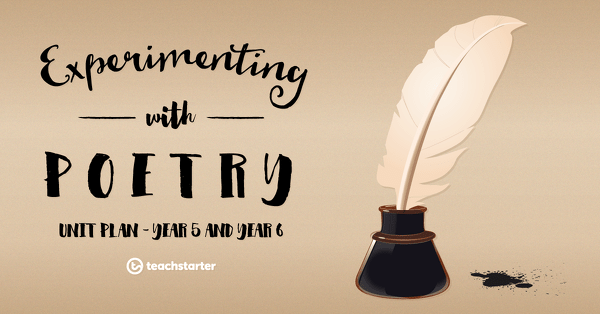
Assessment - Experimenting with Poetry
An assessment task in which students will demonstrate an understanding of the elements of poetry by writing an ode and a ballad.
- Plus Plan
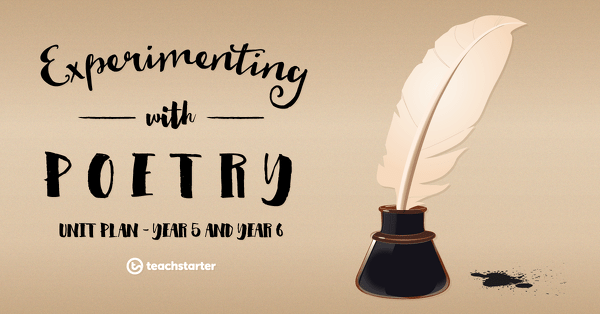
Narrative Poetry - Simple Ballads
A 60 minute lesson in which students will plan and write a simple ballad.
- Plus Plan
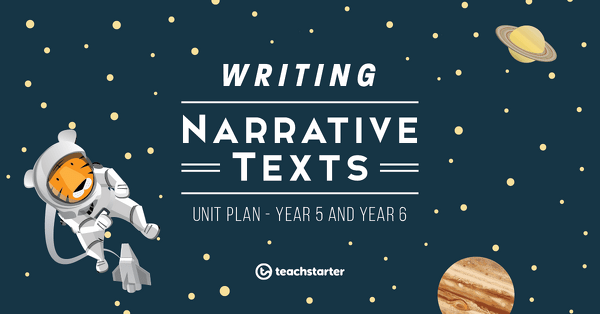
Writing a Narrative - Shared Writing
A 60 minute lesson in which students will write a narrative, in pairs, using appropriate text structure, language and features.
- Plus Plan
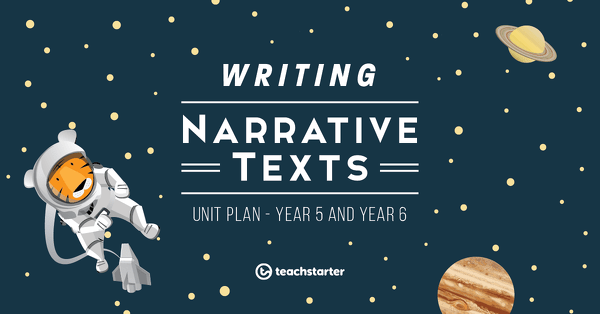
Writing a Narrative - Sensational Story Starters
A 60 minute lesson in which students will investigate exciting, attention-grabbing methods of starting a story.
- Plus Plan
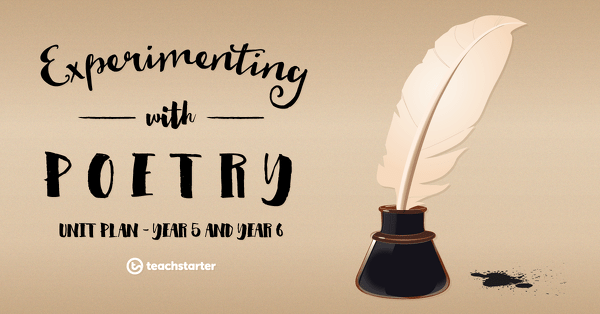
Descriptive Poetry - Odes
A 60 minute lesson in which students will plan and write an ode.
- Plus Plan
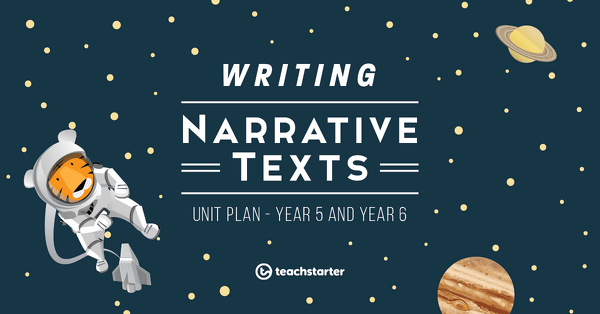
Narrative Features - Developing a Plot
A 60 minute lesson in which students will develop a plot for a narrative which includes a setting, characters and a problem to be solved.
- Plus Plan
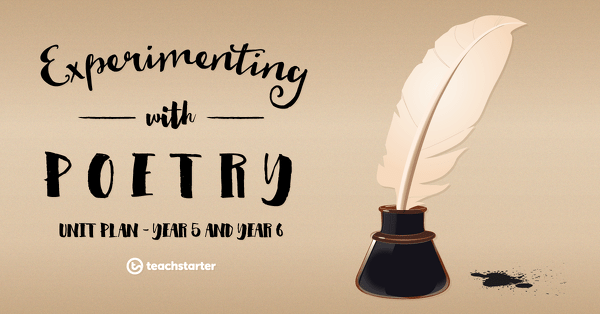
Humorous Poetry - Limericks
A 60 minute lesson in which students will plan and write a limerick.
- Plus Plan
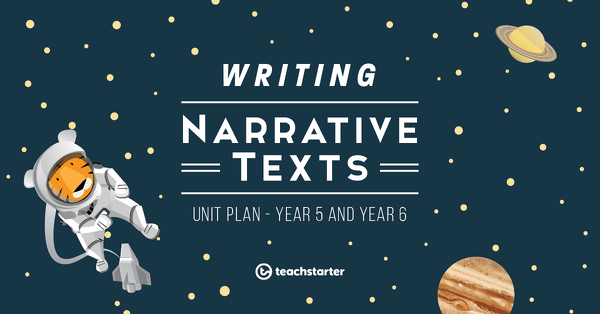
Narrative Features - Building a Character
A 60 minute lesson in which students will use descriptive language effectively to build a character.
- Plus Plan
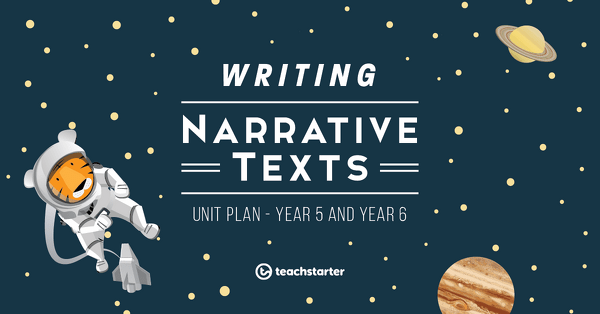
Narrative Features - Creating a Setting
A 60 minute lesson in which students will use descriptive language effectively to create a narrative setting.
- Narrative Writing Templates
- Narrative Writing Worksheets
- Narrative Writing Posters
- Narrative Writing Games
- Narrative Writing for Kindergarten
- Narrative Writing for 1st Grade
- Narrative Writing for 2nd Grade
- Narrative Writing for 3rd Grade
- Narrative Writing for 4th Grade
- Narrative Writing for 5th Grade
- Narrative Writing for 6th Grade
- Narrative Writing for 7th Grade